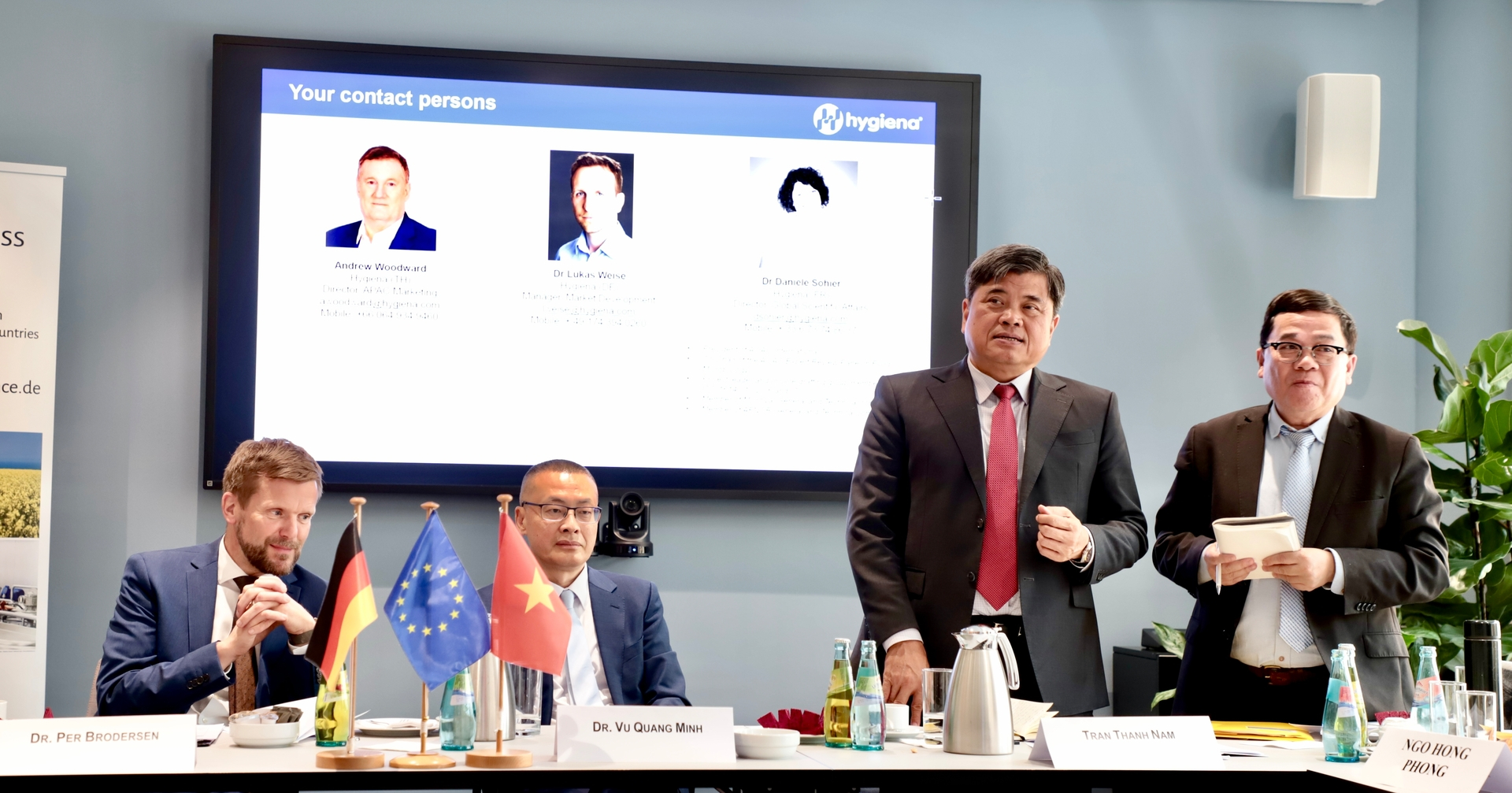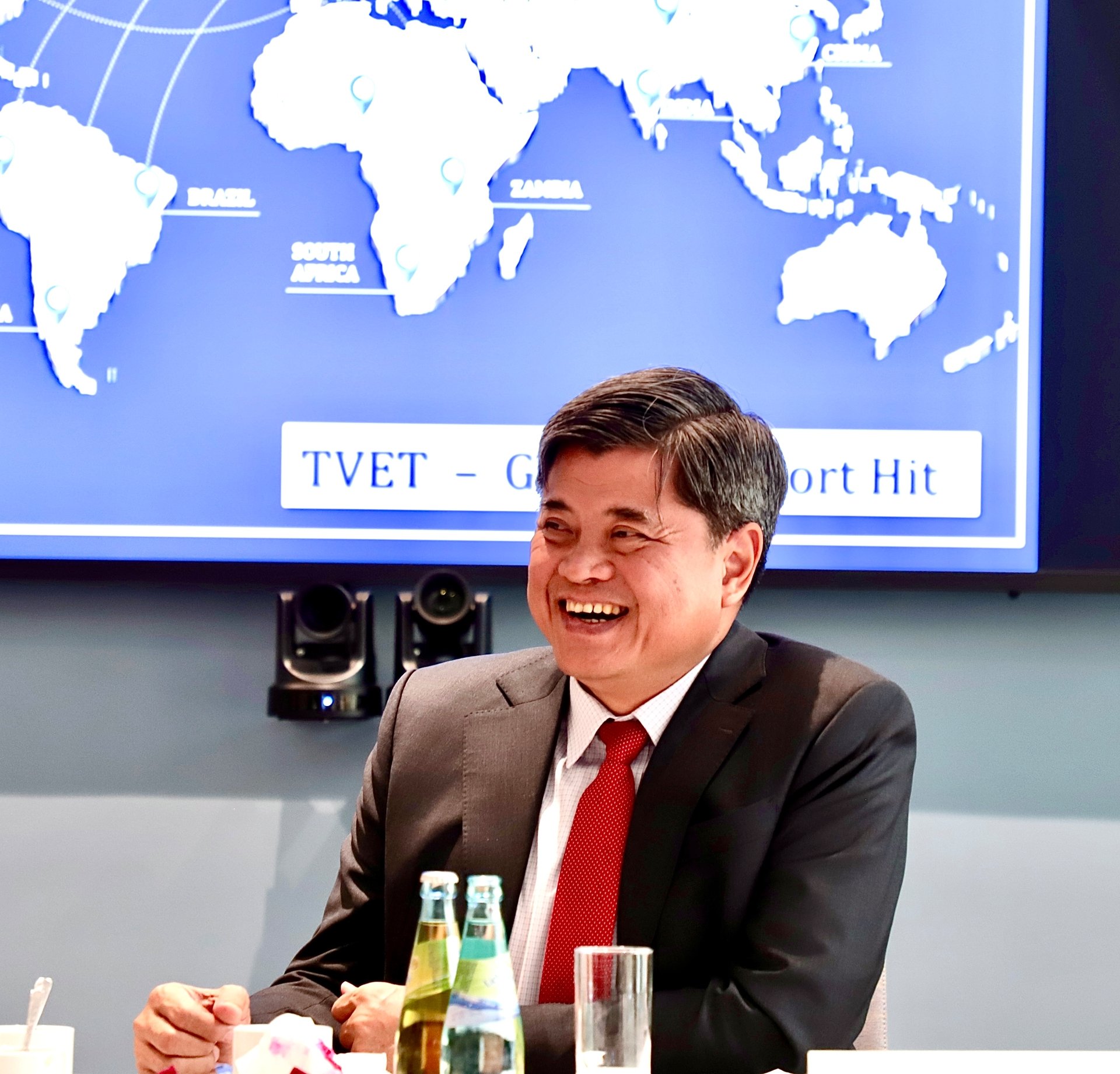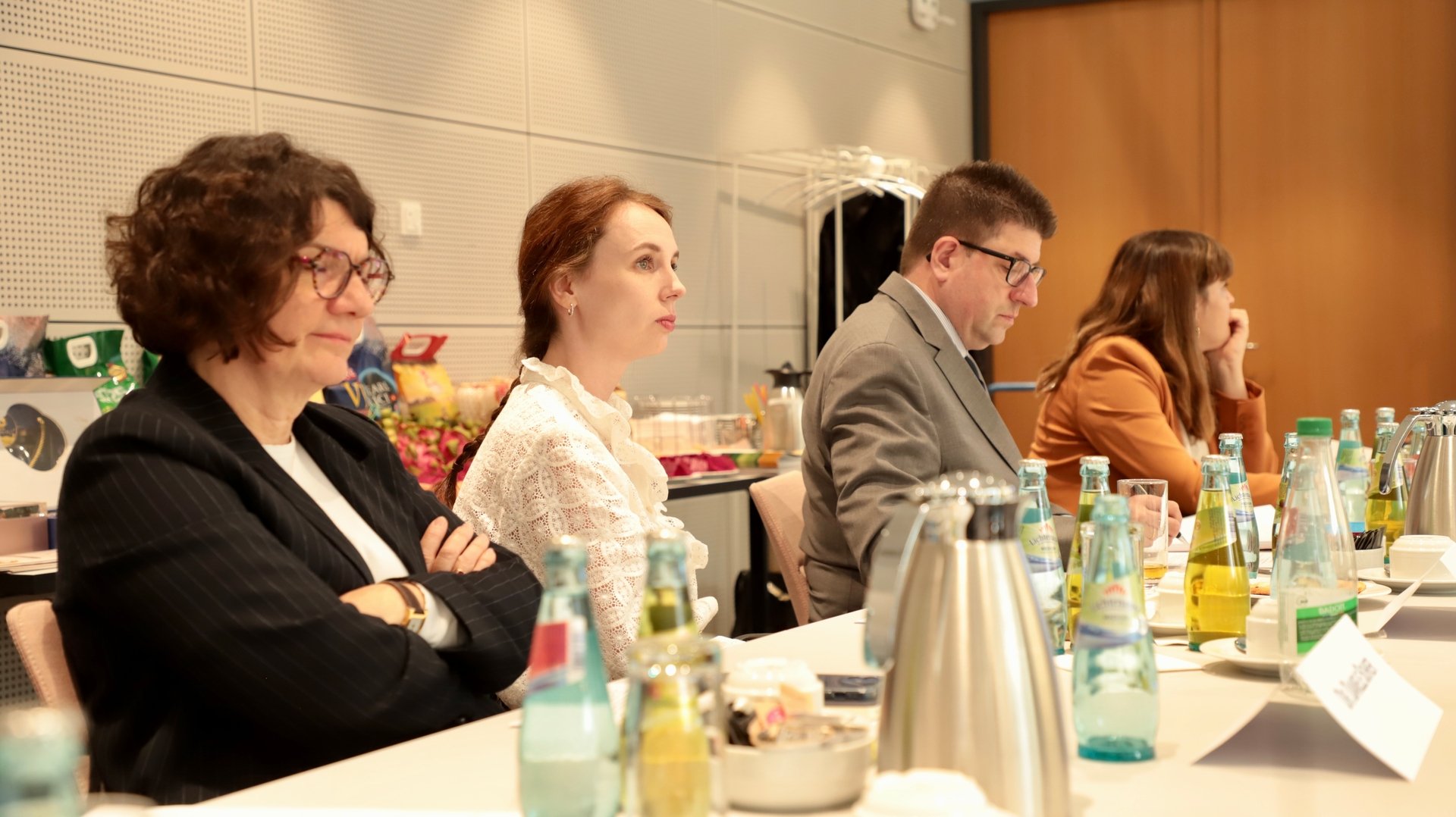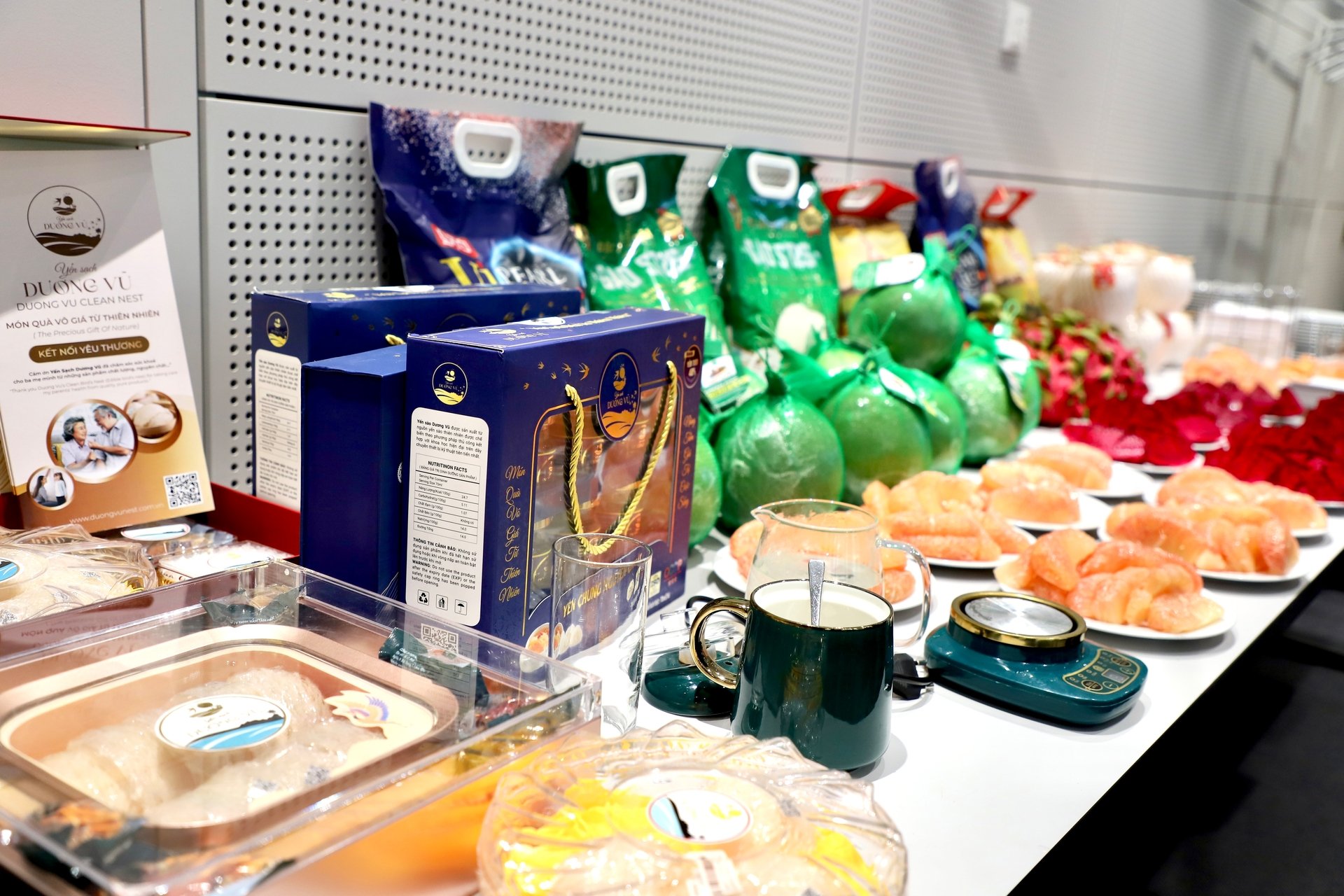December 9, 2025 | 03:54 GMT +7
December 9, 2025 | 03:54 GMT +7
Hotline: 0913.378.918
December 9, 2025 | 03:54 GMT +7
Hotline: 0913.378.918

Mr. Per Brodersen, CEO of the German Agribusiness Association (GAA), Mr. Vu Quang Minh, the Ambassador Extraordinary and Plenipotentiary of Vietnam to Germany, and Mr. Tran Thanh Nam, Deputy Minister of Agriculture and Rural Development of Vietnam (from left to right), chaired the seminar. Photo: ICD.
On May 15, the Ministry of Agriculture and Environment of Vietnam, in coordination with the Embassy of Vietnam in the Federal Republic of Germany, the German Agribusiness Association (GAA), organized the "Connecting Vietnam - Germany agricultural, forestry and fishery trade" seminar in Berlin, Germany.
The seminar attracted the participation of the Vietnam Business Association in Germany, various associations, distribution channels, supermarket chains in Germany, and nearly 50 businesses involved in the production, trading, and processing of agricultural, forestry, and fishery products, as well as logistics services for the import and export of agricultural products.

Deputy Minister of Agriculture and Environment Tran Thanh Nam, expressed the desire for both sides' associations and businesses to strengthen trade promotion events. Photo: ICD.
Speaking at the seminar, Mr. Tran Thanh Nam, Deputy Minister of Agriculture and Environment of Vietnam, emphasized the importance of strengthening bilateral trade relations between Vietnam and Germany in the field of agriculture, forestry, and fisheries. He proposed that German industry associations consider organizing regular annual networking and trade promotion activities with Vietnamese enterprises and industry associations. These initiatives would help promote and expand the market for German products in Vietnam.
In parallel, the Deputy Minister highlighted that Vietnamese agencies and enterprises need to actively collaborate with their German counterparts in organizing delegations to participate in trade fairs and promotional events in Germany. These joint efforts would help introduce and enhance the visibility of Vietnamese agricultural, forestry, and fishery products in the German market.

Delegates attending the seminar. Photo: ICD.
"Agricultural associations from both countries should establish a direct linkage mechanism like association - association and form enterprise groups connected along the supply chain,” Deputy Minister Nam suggested. “This includes coordination in areas such as cold storage, preservation, transportation, bonded warehousing, distribution channel access, and supermarket connections. Such collaboration would help ensure compliance with product value chain regulations while reducing logistics costs and maintaining product quality from production to the end consumer.”
He further emphasized that Vietnamese enterprises should consider forming joint ventures or strategic partnerships with German companies in production and processing, in order to meet regulatory standards and align with market preferences. This would facilitate access to retail chains, supermarkets, and the overseas Vietnamese business community in Germany.”
Within the framework of the seminar, Vietnamese and German associations and businesses actively engaged in discussions, sharing insights into market demands, consumer preferences, import-export regulations, and firsthand experiences in exporting fresh fruits, agricultural products, seafood, and meat to German supermarket chains.
At the same time, participants proposed that relevant authorities create favorable conditions and enhance coordination to promote agricultural cooperation. Thereby facilitating market access for priority products identified by both sides, in order to meet the evolving needs of the market.

Vietnamese agricultural products showcased at the seminar. Photo: ICD.
Germany is one of Vietnam’s most important partners within the European Union (EU), particularly in the field of agricultural trade. Since the EU-Vietnam Free Trade Agreement (EVFTA) came into effect in August 2020, bilateral trade in agricultural, forestry, and fishery products between the two countries has maintained steady growth. In 2024 alone, Vietnam’s exports of agricultural, forestry, and fishery products to Germany reached USD 1.3 billion, an increase of 32% compared to 2023. Imports from Germany totaled nearly USD 200 million, marking a 23.9% increase.
Vietnam’s key export items to Germany include coffee, seafood, cashew nuts, fruits and vegetables, wood and wood products, tea, and handicrafts made from bamboo, rattan, sedge, and woven materials - all of which are well-received by German and European consumers. Conversely, Vietnam mainly imports dairy products, pesticides, fertilizer ingredients, rubber, and other agricultural inputs from Germany.
According to experts, these product groups are largely complementary and do not directly compete with each other. Germany is currently Vietnam’s 7th largest agricultural export market, accounting for 2.1% of the country’s total agricultural, forestry, and fishery export turnover. It also serves as a crucial gateway for Vietnamese products to access the broader EU market, which has over 500 million consumers and a total food import demand of approximately EUR 160 billion per year.
Translated by Phuong Linh

(VAN) Despite numerous challenges, Vietnam's key seafood products are maintaining strong momentum, setting the stage for full-year exports to potentially reach USD 11 billion.

(VAN) The signing of a protocol between Viet Nam and China on the export of fresh jackfruit represents a significant milestone in agricultural trade cooperation between the two countries.

(VAN) On November 27, the Ninh Binh Department of Agriculture and Environment and the Institute for Green Growth Research organized a training course on greenhouse gas inventory for businesses.

(VAN) China’s cooking oil is suddenly flooding into India. It all comes down to a soybean surplus that Beijing doesn’t quite know what to do with.

(VAN) An Giang promotes supply-demand connections, standardizes quality and builds value chains, creating a foundation for sustainable bird’s nest development and aiming to expand exports.
/2025/11/24/5339-4-nongnghiep-075331.jpg)
(VAN) Recently, the conference on 'Sustainable Fisheries Linkage Chain - Tilapia for Export' took place in Tien Hai commune, Hung Yen province.
/2025/11/21/4309-2-153400_128.jpg)
(VAN) Green and low-emission rice is paving the way for Vietnamese rice to enter high-end markets, marking the beginning of a transformation journey toward greening and elevating the national rice brand.